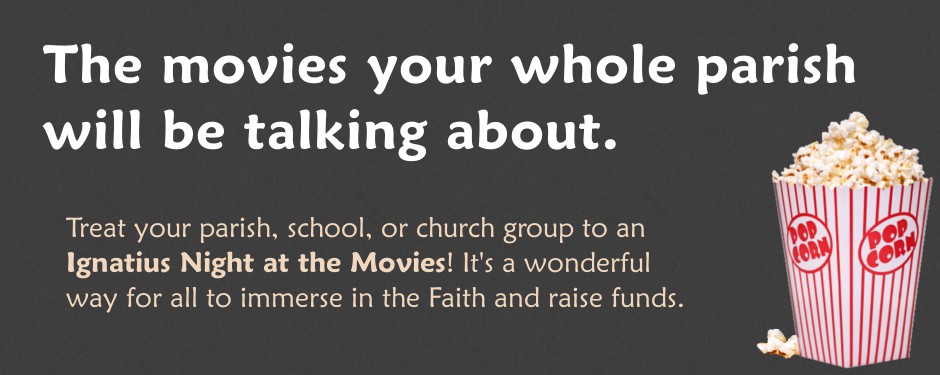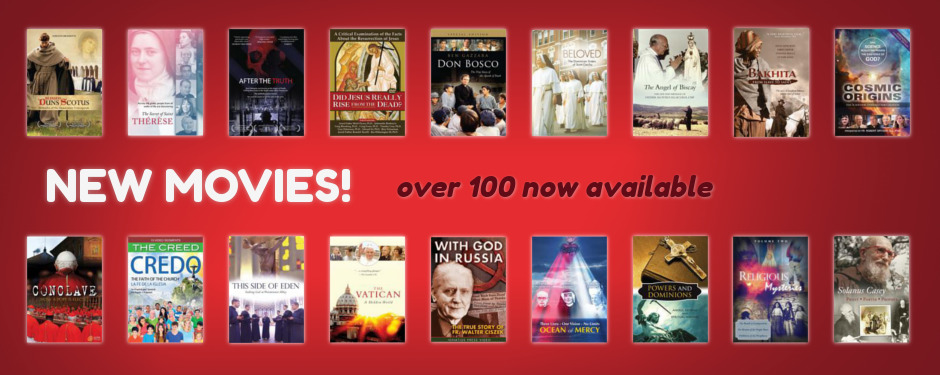Our God's Brother: The True Story of St. Albert Chmielowski
This is the true story of St. Albert Chmielowski, a celebrated Polish artist and painter in the 1800's who was a major inspiration for young Karol Wojtyla, later Pope John Paul II. Albert became dissatisfied with his painting, and disillusioned about the meaning of life, when he encountered many homeless and outcast beggars in Poland that triggered his passion to help the poor. He gave up his promising painting career, and became a monk who served the poor for the rest of his life. He founded a new religious community that would come to be known as the Albertine Brothers and, later, the Albertine Sisters.
This movie is based on a play written by Karol Wojtyla as a tribute to his love for St. Albert, and his inspiration for Wojtyla in discerning his own vocation to give up acting for the priesthood. When he became the Pope, he said that anyone who wanted to understand his views should study his plays, and on the topic of social justice, to study Our God's Brother. Wojtyla described the play not as a drama but a work of "inner theater," an attempt to penetrate the inner mystery of man. It is less driven by action than by interior monologues and intellectual dialogues that are more philosophical than psychological.
The tension in the film isn't just between art and God. There is also the tension between the many poor and the wealthy few; between the two forms of solidarity, Christian brotherhood and Marxism. Wojtyla's personality and philosophical views on man, faith and life are revealed through Albert's monologues with himself and the conversations with others about the meaning of art and man.
Directed by famed Polish filmmaker Krzysztof Zanussi, with an outstanding cast that includes stars Christoph Waltz and Scott Wilson.
"While generally following Wojtyla's text line for line, Zanussi's film softens the stark demands of its format in various ways. The theme of the drama, in the end, is neither art nor social justice as such, but love.
No scene in the film is more effectively constructed than Adam's first 'dialogue' with Christ in his Ecce Homo painting. Zanussi intercuts shots of Adam's face with a slow zoom into the face of Christ in the painting — an obvious but powerful technique enhanced with an inspired move: Zanussi subverts the 'dialogue' by cutting in images of the homeless poor."
— Steven Greydanus, Film Critic, National Catholic Register
"I make an effort in my films to bring hope — and hope is a service to God, because it is the opposite is despair. You do it for Christ, and forget the rest.
It's not enough to be involved, to improve the situation of others. You have to show your real love to Christ and find Christ in all of them, which is heroic."
— Krzysztof Zanussi, Director, Our God's Brother
Special Note
Includes special 16-page Collector's Booklet, written by Catholic film critic Steven Greydanus.
Terms
DVDs are not licensed for public group showings, so in order to show any of these films to your parish, school or organization, you must purchase a Site License which includes additional DVDs to sell or give away. Ignatius Press will provide support and additional information to help make this experience for your parish, school or organization a successful and memorable one! Purchase of these DVD packages includes the permission to show the film in a public setting. If you have questions please email screenings@carmelcommunications.com.






